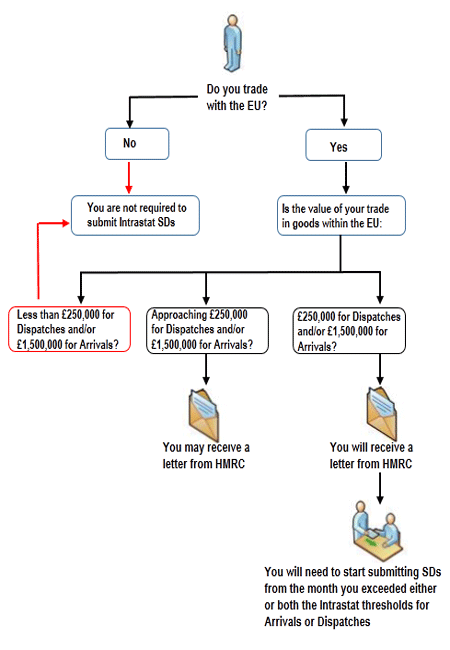A B2B supply of goods from one Member State to another (a dispatch) is VAT free (with the recipient dealing with acquisition tax in the Member State of receipt). However, in order to VAT free treatment to apply evidence that the goods have moved cross-border must be provided and satisfy the authorities in the Member State of dispatch.
The level of evidence and type of documents required to support the right to VAT free treatment varies significantly between Member States. This has led to confusion and difficulties for businesses.
As a result the EC VAT Expert Group* have, this week, produced a paper (paper 46) named “‘Proof of evidence of Intra-EU supplies’” Here: 46 – Proof of IC Supplies
As well as identifying the wide discretion afforded to Member States as to the type of documents required, it notes that this discretion and lack of clarity often leads to disproportionate compliance burdens for businesses involved in the cross border supply of goods. This also results in the fundamental principle of fiscal neutrality and the free movements of goods being impaired.
In summary
The Group’s findings may be summarised:
- Diversity of documentation
Most Member States rely on a myriad of documents which may not be listed in national legislation. Such diversity is a problem and may require businesses to provide documentary evidence that cannot be reasonably obtained. This practice does not reconcile with principles established by the ECJ. The paper adds that tax authorities tend to focus on certain formalities and not permit alternative evidence.
The paper notes that based on Article 131 of the VAT Directive, and often in light of the fight against fraud, tax authorities are introducing local initiatives. The compatibility of these with the EC framework may be questioned and is causing increasing burdens and costs on legitimate taxpayers.
- Importance given by tax authorities to the “knowledge test”
The paper considers that the level of demand from tax authorities to document intra-EC trade should not be upgraded because of fraud cases. Documentary evidence is of a type fraudsters would typically provide. The wide margin of interpretation left to tax authorities and judges regarding concepts such as “good faith” means that further guidance may be required. This, however, should not extend up to a requirement for suppliers to show evidence to authorities that their customers acted in good faith.
- Diversity of practices; timing versus legal certainty
The diversity of approaches across EC Member States generates costs and increase risks for businesses operating in different Member States.
Conclusion
The paper considered some recent ECJ case law on cross-border transactions and concluded VAT free treatment should be granted to the supplier when:
1) It demonstrates that the transaction meets the substantive criteria of that provision, namely that it is entered into with another taxable person in a Member State other than that in which dispatch or transport of the goods begins. This would be done with the supplier holding at least three non-contradictory documents or elements certifying the transport or dispatch to another Member State.
2) In this context, a reasonable customer assessment could be expected from taxpayers when tax authorities audit whether the transactions are taking place in the context of fraud and/or abuse.
Next Steps
It is recommended that new guidance could be adopted in an Implementing Regulation or an explanatory note to the relevant Articles in the VAT Directive could be prepared by the Commission.
It will be interesting to see if these recommendations are adopted. It would make life a lot more straightforward for businesses who trade cross-border in the EC. Although the UK has one of the most practical regimes in this respect, even genuine movements of goods from the UK can result in an unexpected and unwelcome VAT charge because of a lack of specific documentation.
* The VAT Expert Group assists and advises the European Commission on VAT matters. Details here

